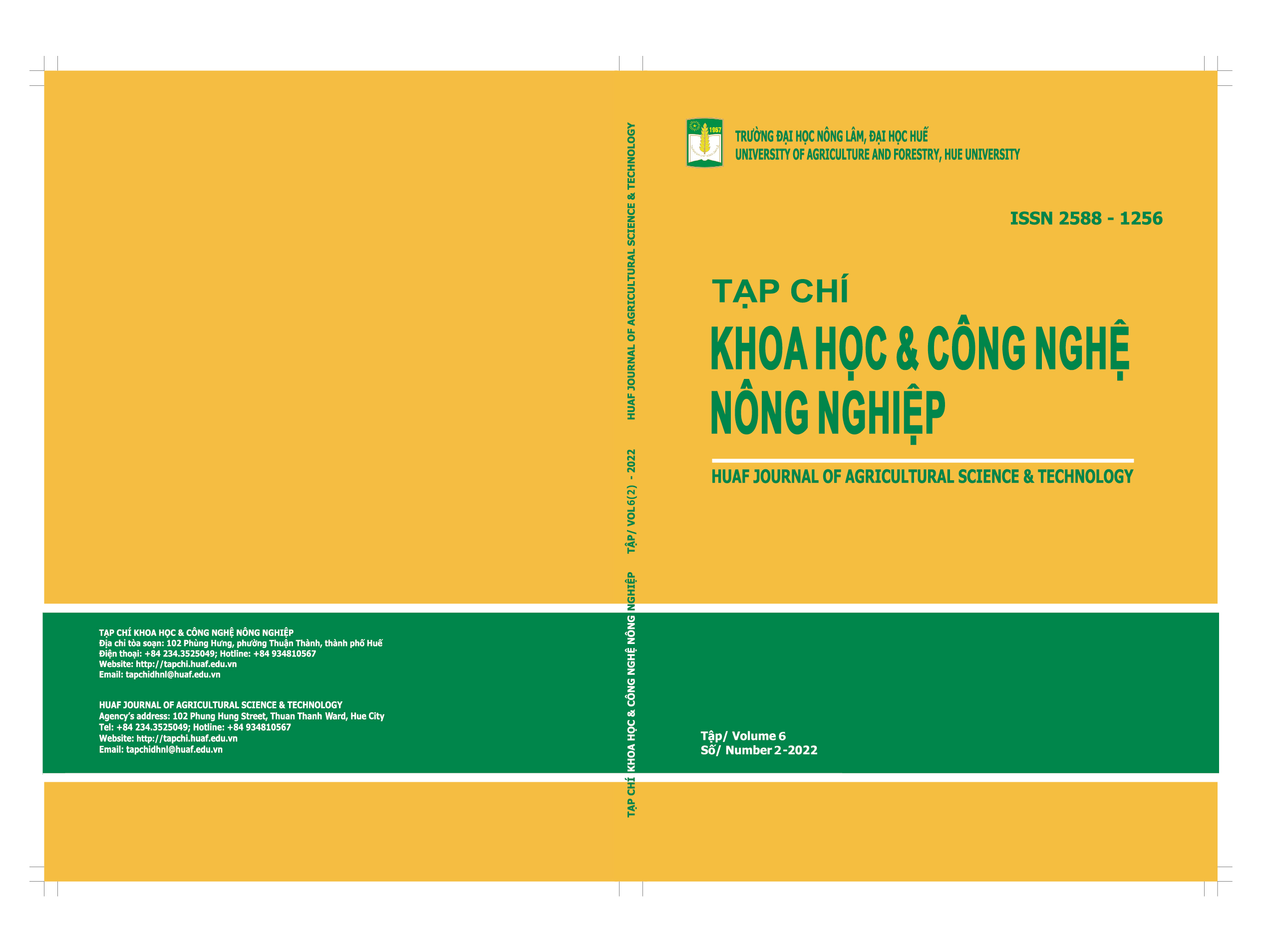##plugins.themes.huaf_theme.article.main##
Abstract
The medicinal plant Morinda officinalis How. has been planted recently due to its medicinal high value. Successfully domesticated tissue-culture plants will provide high quality seedling sources for production needs. The experiments on the effect of growing media, shading, type of fertilizers and fertilizer dosage on the survival, growth and quality of seedlings were carried out at Center for Forestry Research and Practice at Huong Van, the University of Agriculture and Forestry, Hue University. The results of the study showed that tissue-cultured seedlings were domesticated at the nursery stage using a growing media containing 85% alluvial soil and 15% manure, 50% shading gave and the application of micro-organic fertilizers at a done of 300 grams square meter for a period of 6 months, produced the best results in the optimum height 22,40 ± 1,41 cm, the root diameter 1,90 ± 0,06 mm, the number of leaves 11,46 ± 0,53 leaves/sapling, 86,1% of survival rate and 87,1% of qualified sapling rate. These research results have scientific and practical significance for the domestication of tissue-cultured plants at the nursery stage, contributing to the creation of qualified and good quality seedlings sources for planting, sustainable development of the medicinal plant Morinda officinalis How.

